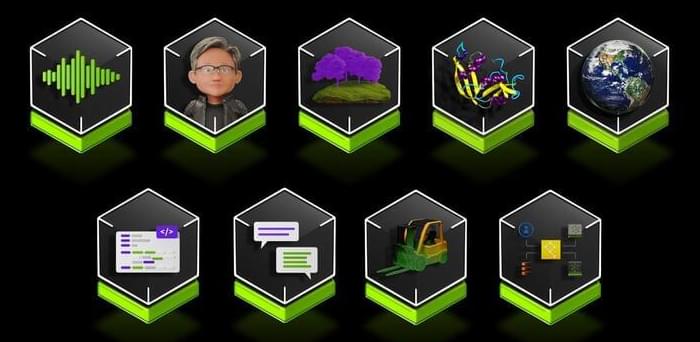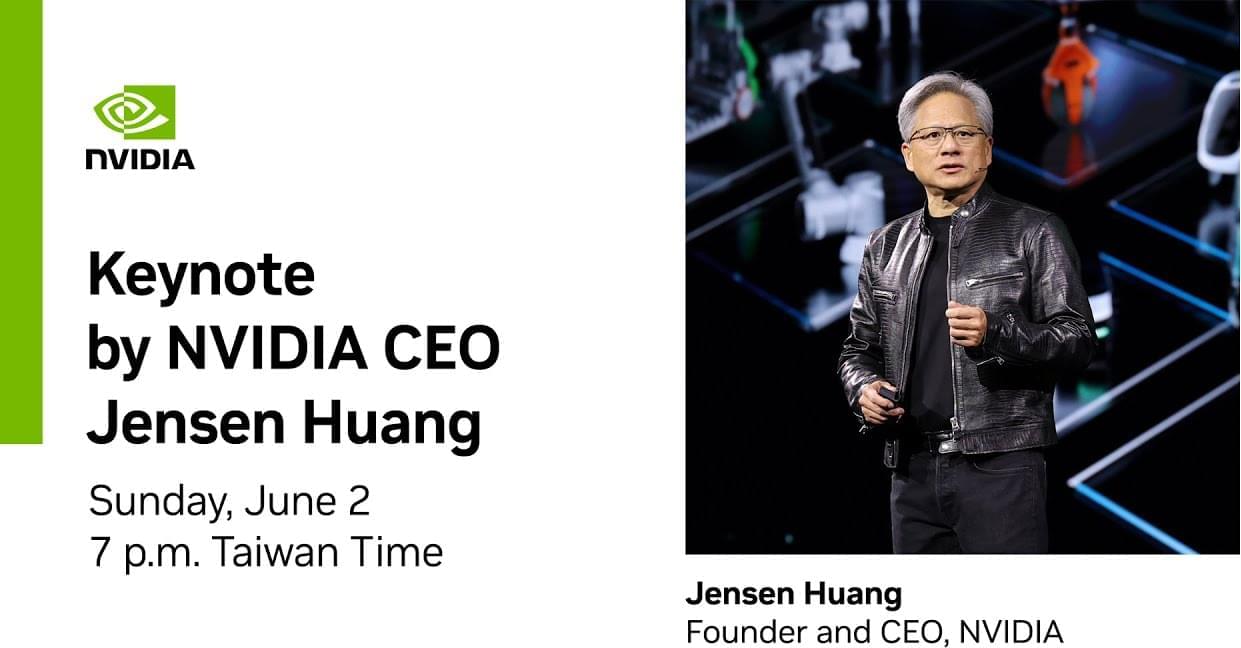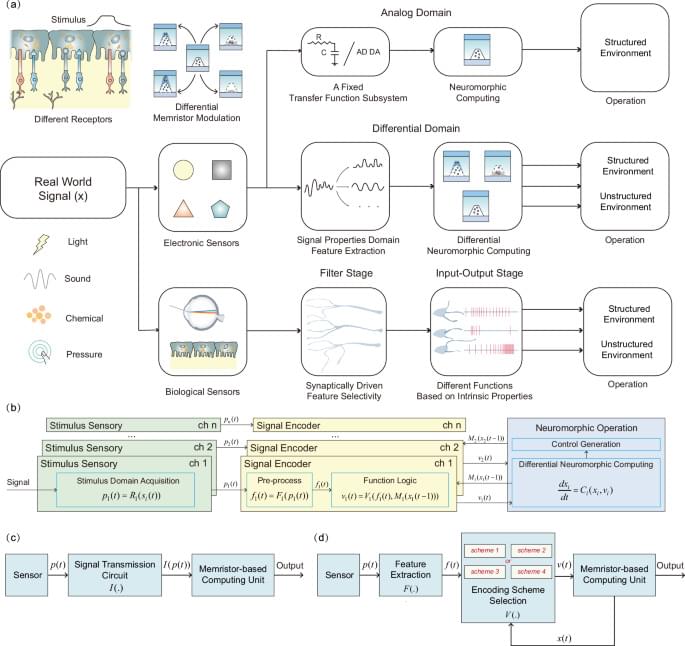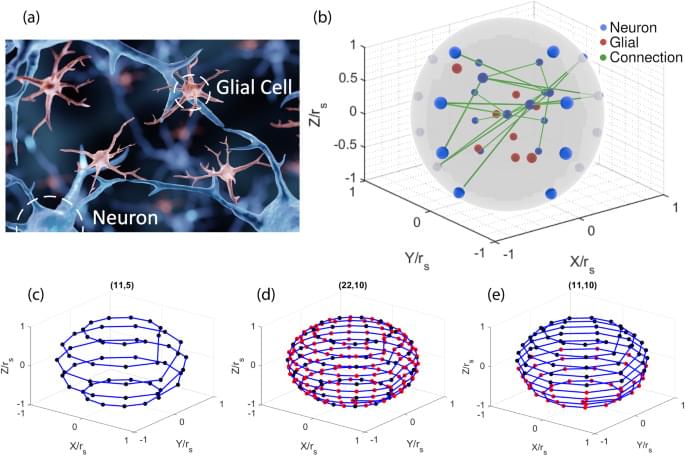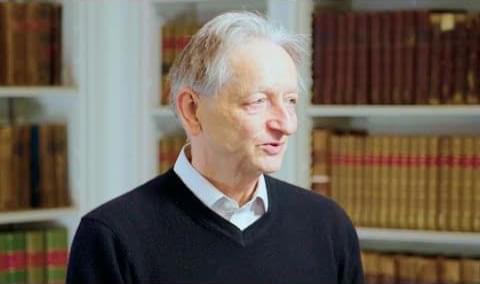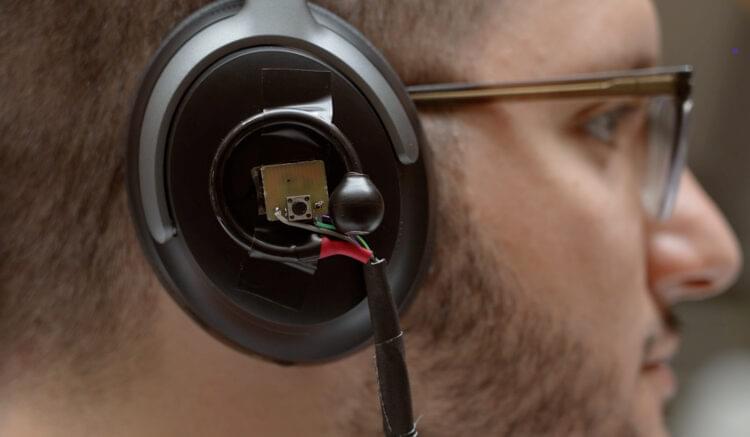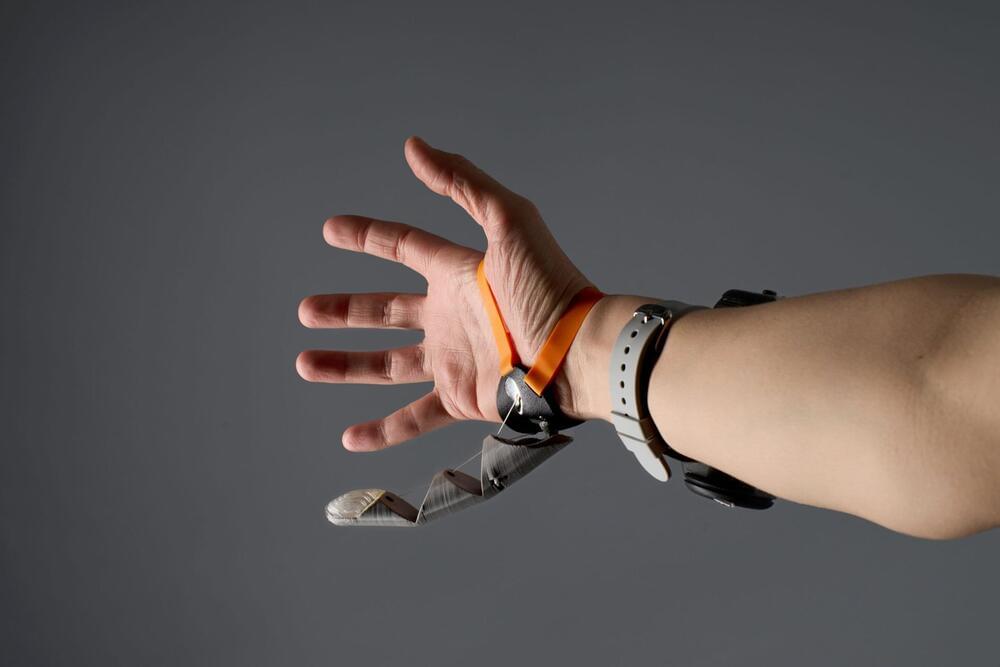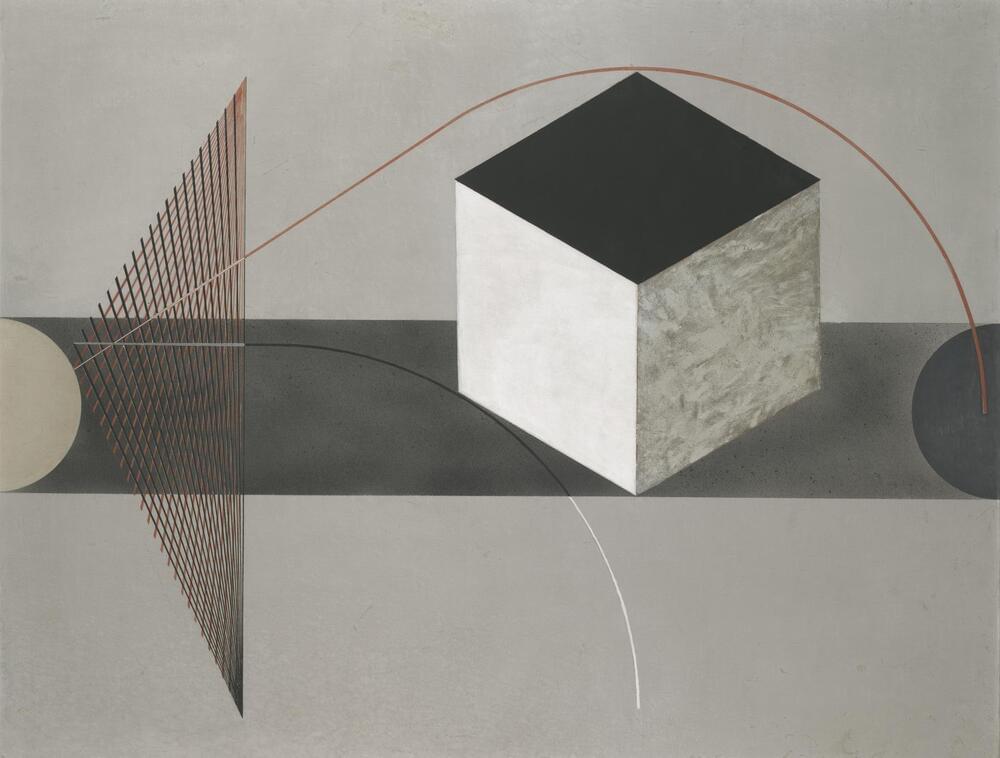Brain-inspired spiking neural networks have shown their capability for effective learning, however current models may not consider realistic heterogeneities present in the brain. The authors propose a neuron model with temporal dendritic heterogeneity for improved neuromorphic computing applications.
Category: robotics/AI – Page 327
NVIDIA today announced that the world’s 28 million developers can now download NVIDIA NIM™ — inference microservices that provide models as optimized containers — to deploy on clouds, data centers or workstations, giving them the ability to easily build generative AI applications for copilots, chatbots and more, in minutes rather than weeks.
NVIDIA founder and CEO Jensen Huang will deliver a live keynote address ahead of COMPUTEX 2024 on June 2 at 7 p.m. in Taipei, Taiwan, outlining what’s next for the AI ecosystem. Tune in to watch it live. https://nvda.ws/3UXATRe
Differential neuromorphic computing, as a memristor-assisted perception method, holds the potential to enhance subsequent decision-making and control processes. Compared with conventional technologies, both the PID control approach and the proposed differential neuromorphic computing share a fundamental principle of smartly adjusting outputs in response to feedback, they diverge significantly in the data manipulation process (Supplementary Discussion 12 and Fig. S26); our method leverages the nonlinear characteristics of the memristor and a dynamic selection scheme to execute more complex data manipulation than linear coefficient-based error correction in PID. Additionally, the intrinsic memory function of memristors in our system enables real-time adaptation to changing environments. This represents a significant advantage compared to the static parameter configuration of PID systems. To perform similar adaptive control functions in tactile experiments, the von Neumann architecture follows a multi-step process involving several data movements: 1. Input data about the piezoresistive film state is transferred to the system memory via an I/O interface. 2. This sensory data is then moved from the memory to the cache. 3. Subsequently, it is forwarded to the Arithmetic Logic Unit (ALU) and waits for processing.4. Historical tactile information is also transferred from the memory to the cache unless it is already present. 5. This historical data is forwarded to the ALU. 6. ALU calculates the current sensory and historical data and returns the updated historical data to the cache. In contrast, our memristor-based approach simplifies this process, reducing it to three primary steps: 1. ADC reads data from the piezoresistive film. 2. ADC reads the current state of the memristor, which represents the historical tactile stimuli. 3. DAC, controlled by FPGA logic, updates the memristor state based on the inputs. This process reduces the costs of operation and enhances data processing efficiency.
In real-world settings, robotic tactile systems are required to elaborate large amounts of tactile data and respond as quickly as possible, taking less than 100 ms, similar to human tactile systems58,59. The current state-of-the-art robotics tactile technologies are capable of elaborating sudden changes in force, such as slip detection, at millisecond levels (from 500 μs to 50 ms)59,60,61,62, and the response time of our tactile system has also reached this detection level. For the visual processing, suppose a vehicle travels 40 km per hour in an urban area and wants control effective for every 1 m. In that case, the requirement translates a maximum allowable response time of 90 ms for the entire processing pipeline, which includes sensors, operating systems, middleware, and applications such as object detection, prediction, and vehicle control63,64. When incorporating our proposed memristor-assisted method with conventional camera systems, the additional time delay includes the delay from filter circuits (less than 1 ms) and the switching time for the memristor device, which ranges from nanoseconds (ns) to even picoseconds (ps)21,65,66,67. Compared to the required overall response time of the pipeline, these additions are negligible, demonstrating the potential of our method application in real-world driving scenarios68. Although our memristor-based perception method meets the response time requirement for described scenarios, our approach faces several challenges that need to be addressed for real-world applications. Apart from the common issues such as variability in device performance and the nonlinear dynamics of memristive responses, our approach needs to overcome the following challenges:
Currently, the modulation voltage applied to memristors is preset based on the external sensory feature, and the control algorithm is based on hard threshold comparison. This setting lacks the flexibility required for diverse real-world environments where sensory inputs and required responses can vary significantly. Therefore, it is crucial to develop a more automatic memristive modulation method along with a control algorithm that can dynamically adjust based on varying application scenarios.
In artificial neural networks, many models are trained for a narrow task using a specific dataset. They face difficulties in solving problems that include dynamic input/output data types and changing objective functions. Whenever the input/output tensor dimension or the data type is modified, the machine learning models need to be rebuilt and subsequently retrained from scratch. Furthermore, many machine learning algorithms that are trained for a specific objective, such as classification, may perform poorly at other tasks, such as reinforcement learning or quantification.
Even if the input/output dimensions and the objective functions remain constant, the algorithms do not generalize well across different datasets. For example, a neural network trained on classifying cats and dogs does not perform well on classifying humans and horses despite both of the datasets having the exact same image input1. Moreover, neural networks are highly susceptible to adversarial attacks2. A small deviation from the training dataset, such as changing one pixel, could cause the neural network to have significantly worse performance. This problem is known as the generalization problem3, and the field of transfer learning can help to solve it.
Transfer learning4,5,6,7,8,9,10 solves the problems presented above by allowing knowledge transfer from one neural network to another. A common way to use supervised transfer learning is obtaining a large pre-trained neural network and retraining it for a different but closely related problem. This significantly reduces training time and allows the model to be trained on a less powerful computer. Many researchers used pre-trained neural networks such as ResNet-5011 and retrained them to classify malicious software12,13,14,15. Another application of transfer learning is tackling the generalization problem, where the testing dataset is completely different from the training dataset. For example, every human has unique electroencephalography (EEG) signals due to them having distinctive brain structures. Transfer learning solves the generalization problem by pretraining on a general population EEG dataset and retraining the model for a specific patient16,17,18,19,20. As a result, the neural network is dynamically tailored for a specific person and can interpret their specific EEG signals properly. Labeling large datasets by hand is tedious and time-consuming. In semi-supervised transfer learning21,22,23,24, either the source dataset or the target dataset is unlabeled. That way, the neural networks can self-learn which pieces of information to extract and process without many labels.
Geoffrey Hinton
Posted in robotics/AI
Timestamps Early inspirations (00:00:00) Meeting Ilya Sutskever (00:05:05) Ilya’s intuition (00:06:12) Understanding of LLMs (00:09:00) Scaling neural networks (00:15:15) What is language? (00:18:30) The GPU revolution (00:21:35) Human Brain Insights (00:25:05) Feelings & analogies (00:29:05 Problem selection (00:32:58) Gradient processing (00:35:21) Ethical implications (00:36:52) Selecting talent (00:40:15) Developing intuition (00:41:49) The road to AGI (00:43:50) Proudest moment (00:45:00)
Noise-canceling headphones have gotten very good at creating an auditory blank slate. But allowing certain sounds from a wearer’s environment through the erasure still challenges researchers. The latest edition of Apple’s AirPods Pro, for instance, automatically adjusts sound levels for wearers — sensing when they’re in conversation, for instance — but the user has little control over whom to listen to or when this happens.
A University of Washington team has developed an artificial intelligence system that lets a user wearing headphones look at a person speaking for three to five seconds to “enroll” them. The system, called “Target Speech Hearing,” then cancels all other sounds in the environment and plays just the enrolled speaker’s voice in real time even as the listener moves around in noisy places and no longer faces the speaker.
The team presented its findings May 14 in Honolulu at the ACM CHI Conference on Human Factors in Computing Systems. The code for the proof-of-concept device is available for others to build on. The system is not commercially available.
Researchers at Cambridge have shown that the Third Thumb, a robotic prosthetic, can be quickly mastered by the public, enhancing manual dexterity. The study stresses the importance of inclusive design to ensure technologies benefit everyone, with significant findings on performance across different demographics.
Cambridge researchers demonstrated that people can rapidly learn to control a prosthetic extra thumb, known as a “third thumb,” and use it effectively to grasp and handle objects.
The team tested the robotic device on a diverse range of participants, which they say is essential for ensuring new technologies are inclusive and can work for everyone.
JULIEN CROCKETT: Let’s start with the tension at the heart of AI: we understand and talk about AI systems as if they are both mere tools and intelligent actors that might one day come alive. Alison, you’ve argued that the currently popular AI systems, LLMs, are neither intelligent nor dumb—that those are the wrong categories by which to understand them. Rather, we should think of them as cultural technologies, like the printing press or the internet. Why is a “cultural technology” a better framework for understanding LLMs?
One of the trade-offs of today’s technological progress is the big energy costs necessary to process digital information. To make AI models using silicon-based processors, we need to train them with huge amounts of data. The more data, the better the model. This is perfectly illustrated by the current success of large language models, such as ChatGPT. The impressive abilities of such models are due to the fact that huge amounts of data were used for their training.
The more data we use to teach digital AI, the better it becomes, but also the more computational power is needed.
This is why to develop AI further; we need to consider alternatives to the current status quo in silicon-based technologies. Indeed, we have recently seen a lot of publications about Sam Altman, the CEO of OpenAI topic.

